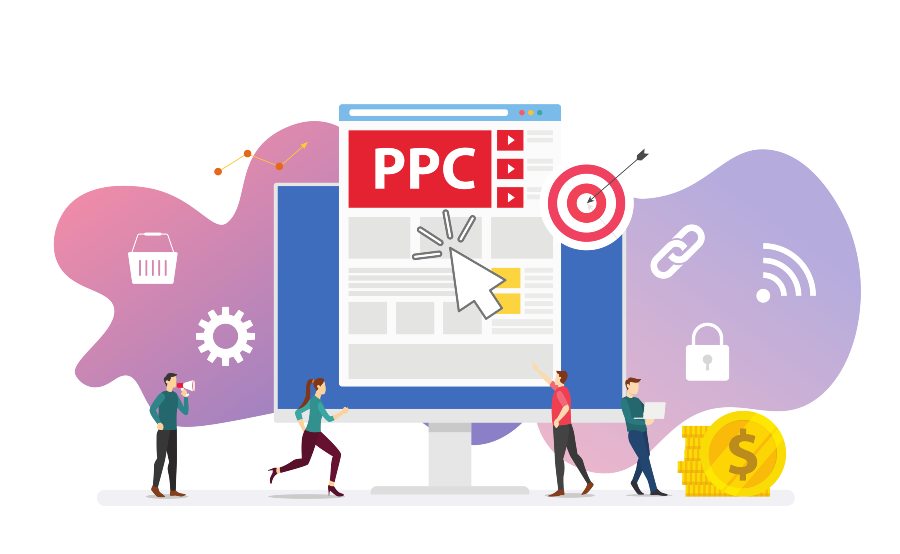
PPC, a critical element of many digital marketing strategies, poses an intriguing question: is it an inbound or outbound marketing tactic? Pay-per-click (PPC) advertising is crucial for boosting brand visibility and enhancing conversion rates beyond the capabilities of SEO alone. Yet, understanding whether PPC falls under inbound or outbound marketing is essential as digital marketing paradigms continue to evolve.
Book a FREE Consultation!
Understanding PPC and Its Place in Marketing
Before delving into the classification of PPC, let’s define the basic concepts involved when considering if PPC is inbound or outbound:

What is PPC?
PPC, short for Pay-per-click, entails advertisers paying a fee each time a user clicks on one of their ads. Essentially, it's a method of purchasing visits to your website instead of relying solely on organic traffic. For instance, a bakery in Bristol might bid on the keywords "Bristol cake shop near me" to appear at the top of search results, hoping to draw more traffic to their site.

What is Inbound Marketing?
Inbound marketing strategies aim to attract audiences to a brand organically. This method encompasses various techniques like SEO, social media content, blogging, and more. It’s characterized by the concept of drawing customers to find you themselves when they need information or a product, rather than pushing your message onto prospects.

What is Outbound Marketing?
Outbound marketing, often seen as the more assertive approach, involves reaching out to potential customers in more direct ways. This includes tactics like paid social media ads, TV commercials, and display advertising. It's often about making your presence so known that consumers cannot ignore you, which is sometimes referred to as interruption marketing.

Interruption Marketing: A Modern Take on Outbound
Interruption marketing is a contemporary term that describes strategies designed to capture attention aggressively. Unlike more passive approaches, it involves direct and often unavoidable advertisements that seek to divert attention toward the brand momentarily.
Is PPC Inbound or Outbound?
While PPC is a paid method, it doesn’t necessarily fit cleanly into the outbound category. The nature of PPC — requiring users to actively search for related keywords before seeing ads — places it more aligned with inbound principles. Unlike unavoidable banner ads or broadcast commercials, PPC targets users who are already interested in similar products or services, providing them with relevant options when they are most receptive.
Integrating PPC with Inbound Marketing Tactics
PPC can complement various inbound marketing strategies effectively:
Targeting Interested Users: PPC allows you to reach users actively searching for what you offer, aligning with the inbound methodology of attracting engaged audiences.
Enhancing Brand Visibility: If certain SEO efforts are falling short, PPC can provide an additional boost to ensure your brand remains competitive.
Gathering Valuable Insights: The data-driven nature of PPC enables real-time performance tracking and optimization, which is important for refining marketing strategies.
Supporting Content Marketing: By directing traffic to specific content pieces, PPC can enhance content marketing efforts, whether promoting awareness or driving conversions.
PPC in the Context of Content Marketing
Combining PPC with content marketing can increase traffic and conversions by linking ads directly to relevant content on your website. For instance, ads that tie into detailed blog posts about your products can lead to increased engagement and deeper consumer interest.
Could PPC Ever Be Considered Outbound?
Context is key in determining whether PPC acts as outbound marketing. If PPC ads serve up irrelevant content or products unrelated to the user’s search intent, they can be intrusive, resembling traditional outbound tactics. However, well-targeted PPC campaigns that meet immediate users’ needs lean more towards inbound methodology.
Concluding Thoughts on PPC as Inbound Marketing
Today, PPC is increasingly seen as part of the inbound marketing spectrum, particularly when it complements a user’s search intent without being disruptive. As digital marketing continues to evolve, PPC adapts, becoming a valuable tool for attracting and converting customers within the inbound marketing framework. For businesses looking to enhance their digital strategy, incorporating thoughtful, well-planned PPC campaigns can bridge the gap between paid and organic efforts, providing comprehensive marketing synergy.



